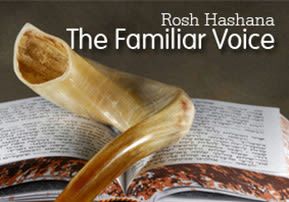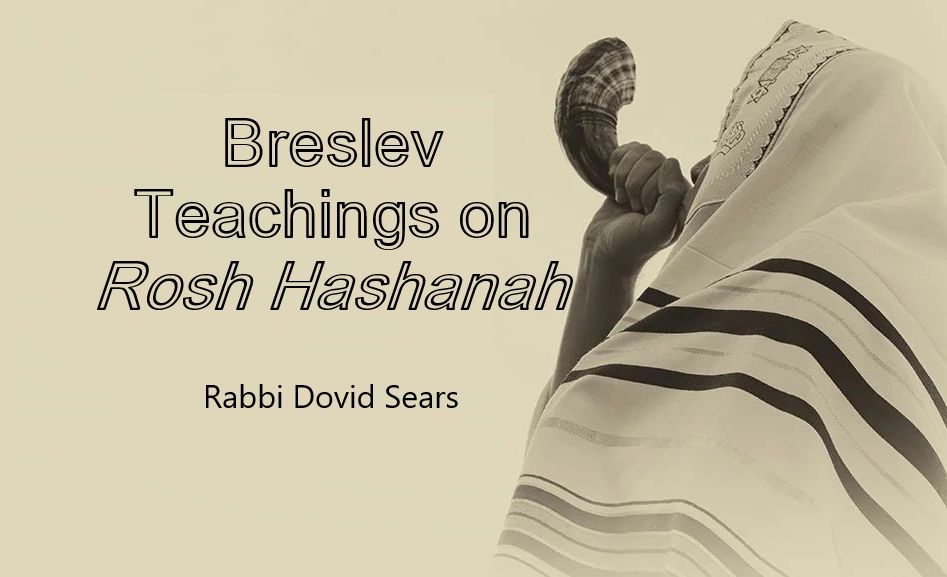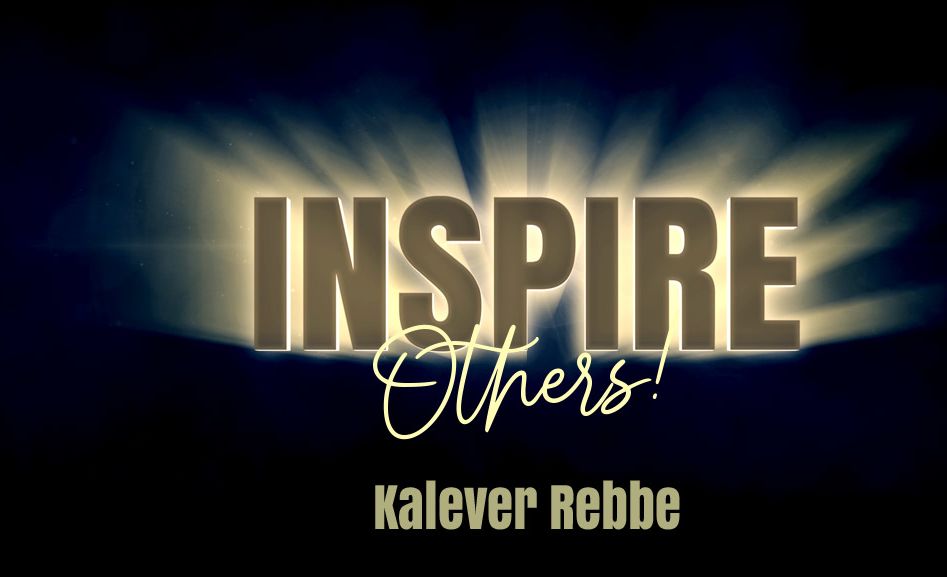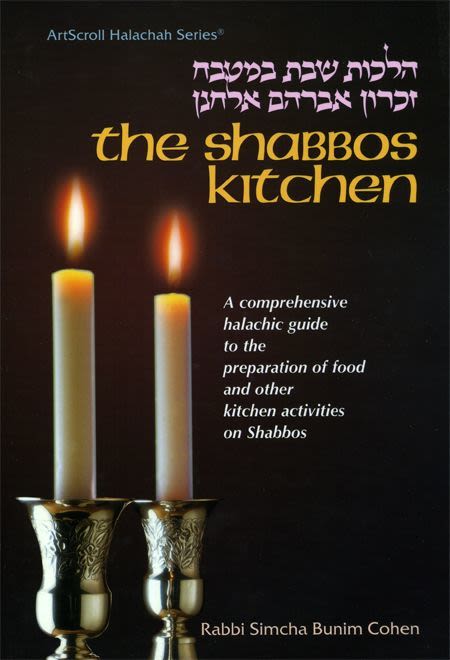
Rosh Hashanah – The Familiar Voice
The call of the shofar reminds the King of Kings of our virtues, just as the whisper of the village-born soldier reminded his king of that fateful night...

“Happy is the nation that knows the call of the shofar!” (Tehillim 89:16, said immediately after the shofar service on Rosh Hashanah).
Rebbe Nachman of Breslev teaches (Likutei Etzot, Moadei Hashem, Rosh Hashanah, 3), that the call of the shofar, the ram’s horn, mitigates stern judgments.
Most likely, Rebbe Nachman’s source is a ten-century-old letter by Rav Saadia Ga’on, which lists the ten reasons for blowing the shofar on Rosh Hashanah, two of which refer to the mitigation of stern judgments. Reason Three of the letter states that the shofar is reminiscent of the call of the shofar on Har Sinai (Mount Sinai), when the people of Israel willfully accepted the Torah. Reason Six states that the shofar – the ram’s horn – is reminiscent of the ram that served as a surrogate sacrifice when Avraham (Abraham) lovingly agreed to fulfill Hashem’s commandment to sacrifice his beloved son Yitzchak (Isaac).
By blowing the shofar on Rosh Hashanah, we remind Hashem of our forefathers’ virtues, and thus mitigate the stern judgments invoked by our own misdeeds during the previous year. With Hashem’s loving guidance, the following parable will help us understand the shofar‘s spiritual capability of mitigating stern judgments:
In his younger days, the King had personally commanded the Royal Military. Years ago, leading the royal cavalry regiment, he had almost lost his life in a fierce battle against the kingdom’s hostile neighbors to the north. His troops had been decimated, his horse had been killed, and he was badly wounded in the leg.With nightfall, an eerie silence hovered over the battlefield. The hoot of an owl and the howl of a wolf temporarily replaced the rattling of sabers and the battle cries of the enemy. The King managed to crawl to a nearby forest; wounded and exhausted, he had almost lost consciousness.The blackness of midnight weighed heavy on the King’s soul. He anticipated a bitter end; if he’d succeed in surviving the night, he’d most certainly be helpless prey to an enemy sword in the morning. All seemed hopeless, when…The King was startled by a touch on his shoulder. He could see nothing in the darkness; all he heard was the benevolent voice of a young foot soldier that whispered, “Your Majesty, you are severely injured. Don’t worry, for I shall carry you to safety. Be absolutely silent, for the enemy is lurking in every corner!”The brawny young lad, the son of a loyal villager, carried the King on his back all night long until they reached friendly forces. The King received medical attention and eventually was nursed back to health. Out of gratitude, the King took the valiant young soldier that saved his life back with him to the Palace. He awarded the lad a medal of honor and a place in the Royal Military Academy, the kingdom’s most prestigious educational institution and officer’s school.The village-born lad excelled in his studies and received a commission in the Royal Military. Rising quickly through the ranks, he incurred the jealousy of his fellow officers, most of whom were the sons of noblemen and aristocrats. The young officer of peasant stock sorely out-shined them. When he was chosen over another candidate – the son of a royal minister – to become the commander of the Royal Guard, the jealous aristocrats could stomach no more.The blue-blooded rivals plotted against the village-born officer, whom they referred to with disdain as “the commoner.” Heinously, they collected an entire dossier of circumstantial evidence, false testimony, and incriminating letters that they planted among his possessions. With virtually air-tight accusations of treason and conspiracy to kill the King, the newly-appointed commander of the Royal Guard was shamefully thrown into prison until his fateful day in court.Tens of witnesses and hours of testimony seemed to assure a verdict or treason and death by a firing squad. The circumstantial and fictitious evidence left no hope. The village-born commander was found guilty.Like all prisoners sentenced to death, “the commoner” was granted a final wish: He requested to appear before the King the night before his execution. In accordance with royal law, his request was granted.“The commoner” asked for everyone to be silent, and for the lights to be extinguished momentarily in the royal court. Bound in chains and heavily guarded, he stood before the King in darkness and whispered, “Your Majesty, you are severely injured. Don’t worry, for I shall carry you to safety. Be absolutely silent, for the enemy is lurking in every corner!”The King flashed back to that fateful night when he didn’t believe that he’d ever see the light of day again. He knew in his heart that the same village lad, who so selflessly endangered himself to carry the King to safety, could never have conspired against him. The King ripped up the verdict, freed the accused, and restored him to his rightful place of honor as commander of the Palace Guard, but not before he vowed to unleash his wrath on all of the evil officers behind the slander and the false accusations.
The forces of din, severe judgment, conspire against the Jewish People to seek punishments and harsh verdicts. Often, from the long list of accusations against us, we don’t even know how to defend ourselves. Consequently, we sound the shofar on Rosh Hashanah. The call of the shofar reminds the King of Kings of our virtues, just as the whisper of the village-born soldier reminded his king of that fateful night on the battlefield when he saved the king’s life.
The shofar mitigates severe judgments, for it reminds Hashem that the holy Jewish People were the only nation on earth that agreed to receive and abide by the Torah. Furthermore, our forefather, Avraham, was willing to sacrifice his lone, beloved son of his old age, or do anything else that Hashem requested. Such a nation cannot be guilty of willful transgression. “Happy is the nation that knows the call of the shofar!”
May we all merit a wonderful inscription in the Book of (a long, happy, and healthy) Life, Amen.
Ketiva V’Chatima Tova!












Tell us what you think!
Thank you for your comment!
It will be published after approval by the Editor.